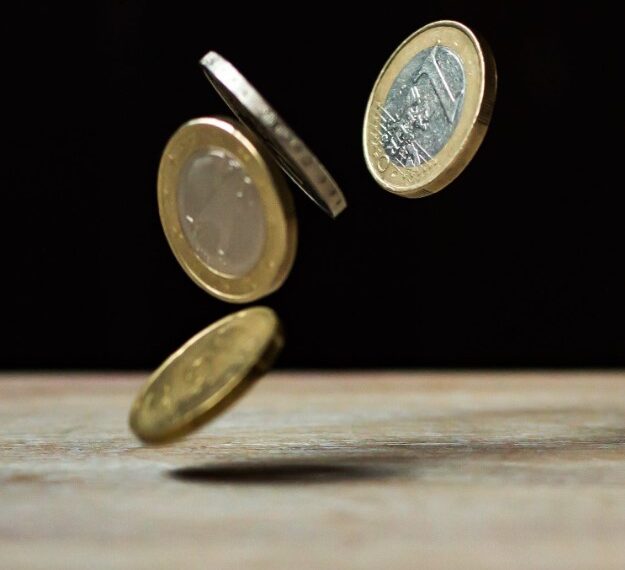Today we are taking a closer look at the exciting topic of investing in currencies that has been catching some significant attention recently due to the global inflation. If you’ve ever asked yourself, “Should I be investing in currencies?”, then keep reading!
The forex market: A world of possibilities
Let us start by unpacking what we mean by ‘investing in currencies’. This usually refers to participating in the foreign exchange market (or Forex, for short). The Forex market operates 24 hours a day, and it is where global currencies are traded. It is the largest, most liquid financial market in the world, with trading volumes that dwarf the stock market. Basically, you can trade as much as you want at any time you want. Sounds fascinating, right?
But the question is, does it make sense for you to invest in it?
Opportunities and risks
Just like any investment, Forex trading comes with both opportunities and risks. On the one hand, you have the chance to profit from changes in currency values. When you buy a currency low and sell it high, you make a profit. Plus, the Forex market is open 24/7, meaning you can trade at any time that suits you.
On the other hand, currency values can be volatile, influenced by various factors from economic indicators to geopolitical events. It is essential to understand that investing in currencies can be risky and requires a solid understanding of the market. This especially rings true with the recent inflation running rampant and affecting the currency market.
Should you invest?
Investing in currencies is not for everyone, but it can be a worthwhile endeavor for those who are well-versed in the market and willing to take the risk.
Here are some points to consider before you dive in:
- Your risk tolerance: Currency trading is generally considered higher risk than traditional investments like stocks and bonds. Be honest with yourself about how much risk you’re willing and able to take on.
- Knowledge and expertise: Successful Forex trading requires a strong understanding of global economies and currency market dynamics. If you’re not there yet, don’t worry! There are plenty of resources to help you learn about this field in more detail. You can find these resources online, or you can find books on the topic such as “A Beginner’s Guide to Forex Trading” by Matthew Driver.
- Time commitment: Because the Forex market operates 24/7, it requires more time and attention than traditional markets. Consider if you have the time to dedicate to this type of investing.
Popular investment currencies
When it comes to currency trading, some currencies stand out because of their global significance and trading volume. Here are two of the most commonly traded and sought after currencies in the investment world
1. The US dollar (USD)
Why it is popular
Often referred to as the world’s ‘reserve currency’, the US dollar is the most widely held and traded currency. Many commodities, like oil and gold, are priced in USD, and many countries hold significant portions of their foreign reserves in this currency.
Investment rationale
Investing or trading in the USD is common due to the sheer size and strength of the US economy. The country’s political stability, relatively transparent monetary policy, and significant influence over global economic trends make the USD a default ‘safe haven’ currency. In times of global economic uncertainty, investors and traders tend to flock to the USD, pushing its value higher. This is what we recently experienced following the global pandemic.
2. The Euro (EUR)
Why it is popular
The Euro is the official currency of the Eurozone, which comprises 19 of the 27 European Union (EU) member countries. It is the second most traded currency after the USD and represents a significant portion of the world’s money supply.
Investment rationale
The Euro offers exposure to a vast and diversified economic region. Many investors are drawn to the Euro due to the collective economic strength of the member countries and the European Central Bank’s (ECB) influence on monetary policy. Furthermore, European countries are known for their robust financial markets, and this combined with the region’s political significance makes the Euro a focal point in the global currency landscape.
3. Other currencies
While these two currencies are among the most dominant, it is essential to understand that the world of currency trading is vast. Other significant players like the Japanese Yen (JPY), British Pound (GBP), and Australian Dollar (AUD) also have their unique appeal and rationale for investment. Before diving into any currency investment, it is crucial to study the associated economies, geopolitical issues, and central bank policies that can influence their values.
The link between foreign stock market investments and currency exposure
Now, let us take a moment to discuss another way you might be exposed to currency trading without even realizing it: By investing in foreign stock markets.
For example, let us say that you are an American investor who buys shares in a European company. You pay for these shares in euros, which means you have to exchange your dollars for euros. Now, let us imagine the European company performs well and the value of your shares increases. Great news, right? It is fantastic, but it is not the whole picture.
If, during the same period, the euro weakens against the dollar, when you sell your shares and convert your euros back into dollars, you may receive fewer dollars back than you initially invested, even though the value of your shares increased. On the flip side, if the euro strengthens against the dollar, your dollar return could be even higher.
This is often an overlooked aspect of investing in foreign stock markets. Currency fluctuations can either boost or undermine your returns, adding an additional layer of risk – but also potential reward – to your investments.
It is also worth noting that there are investment products, known as hedged funds, that aim to minimize the effect of currency fluctuations. These can be a useful tool for those wishing to invest in foreign markets without the added currency risk.
Learn more about investing in the stock market.
Final thoughts on investing in currencies
Investing in currencies can offer a unique opportunity to diversify your investment portfolio, but it is not without its challenges. Before embarking on this journey, ensure you are well-prepared, adequately educated, and fully aware of the potential risks involved.
Happy investing!





